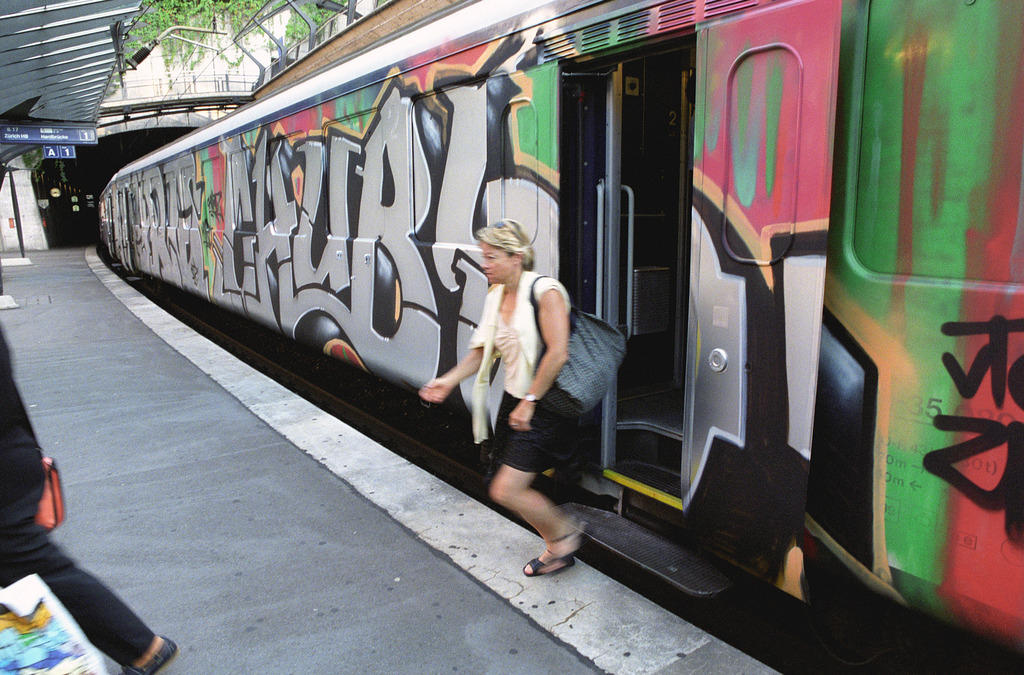
Swiss railways uses drones against graffiti sprayers

The Swiss Federal Railways has been using drones in the fight against graffiti sprayers since the beginning of July, having received authorisation from the Federal Office of Civil Aviation to do so.
+Get the most important news from Switzerland in your inbox
The company confirmed a report in the NZZ am Sonntag newspaper, according to which the drones fly up to 30 metres high and are only used in the track area, where unauthorised access is prohibited.
The target is people who trespass on railroad premises at night, namely graffiti artists.
+ A special carriage where schoolchildren are taught vandalism prevention
The Federal Office of Civil Aviation (FOCA) has issued a permit to the Video and Graffiti Unit of the Federal Railways Transport Police for this purpose. This authorises the operation of the Beehive 1 drone system from Sunflower Labs. The drones are automated, but are monitored by humans.
The federal railways is not disclosing how many such drone missions have been flown since the beginning of July and where they have taken place “for police reasons”.
According to the federal railways, damage caused by vandalism costs the company several million francs a year.

More
Graffiti removal costs Swiss railways millions
Translated from German by DeepL/ts
This news story has been written and carefully fact-checked by an external editorial team. At SWI swissinfo.ch we select the most relevant news for an international audience and use automatic translation tools such as DeepL to translate it into English. Providing you with automatically translated news gives us the time to write more in-depth articles.
If you want to know more about how we work, have a look here, if you want to learn more about how we use technology, click here, and if you have feedback on this news story please write to english@swissinfo.ch.

In compliance with the JTI standards
More: SWI swissinfo.ch certified by the Journalism Trust Initiative





























You can find an overview of ongoing debates with our journalists here . Please join us!
If you want to start a conversation about a topic raised in this article or want to report factual errors, email us at english@swissinfo.ch.